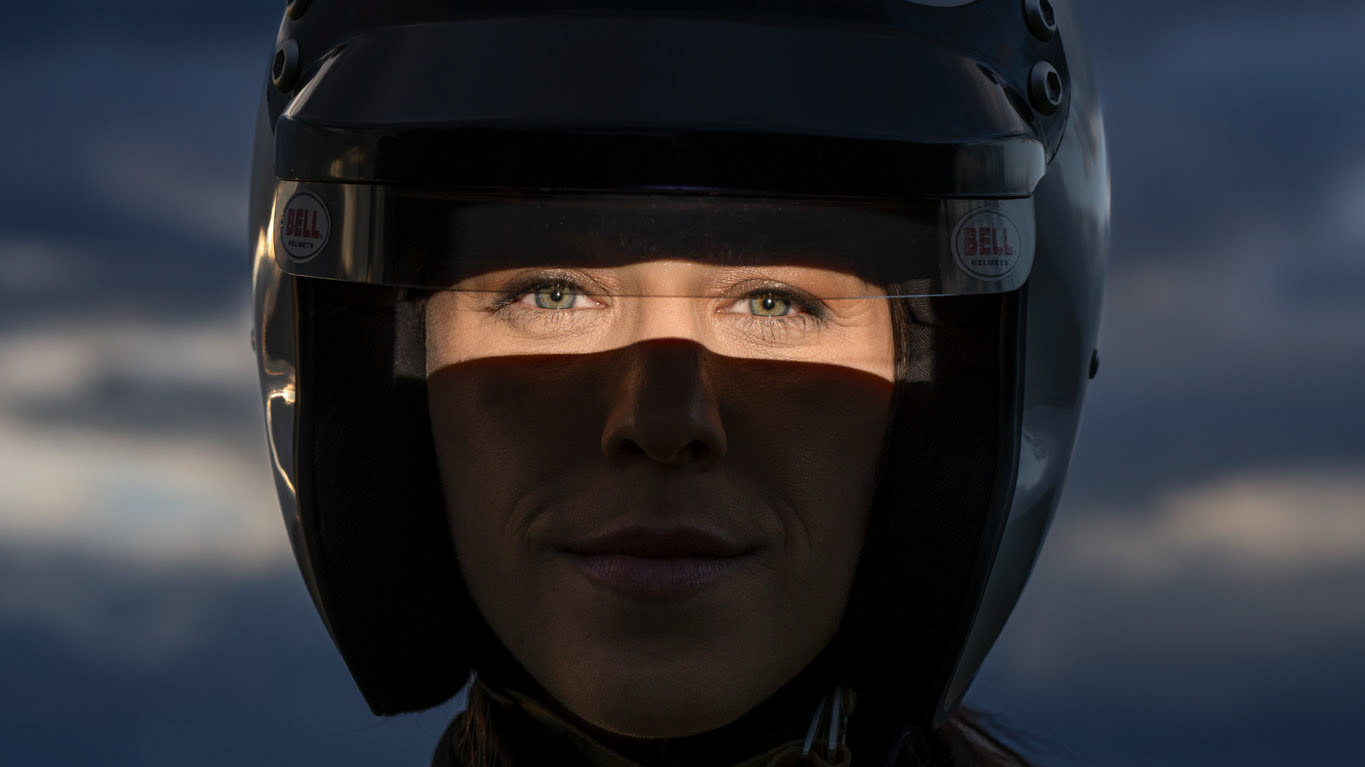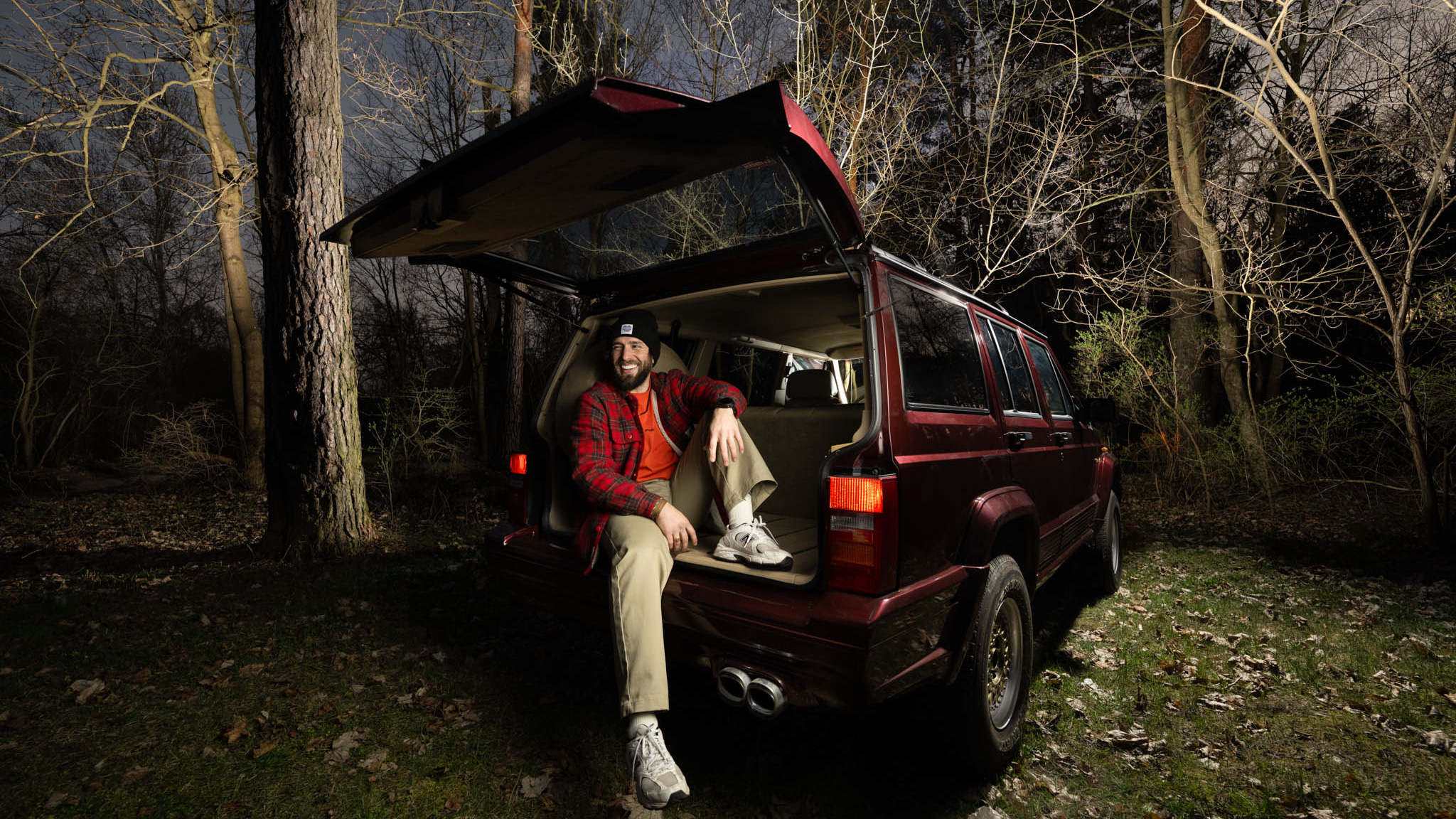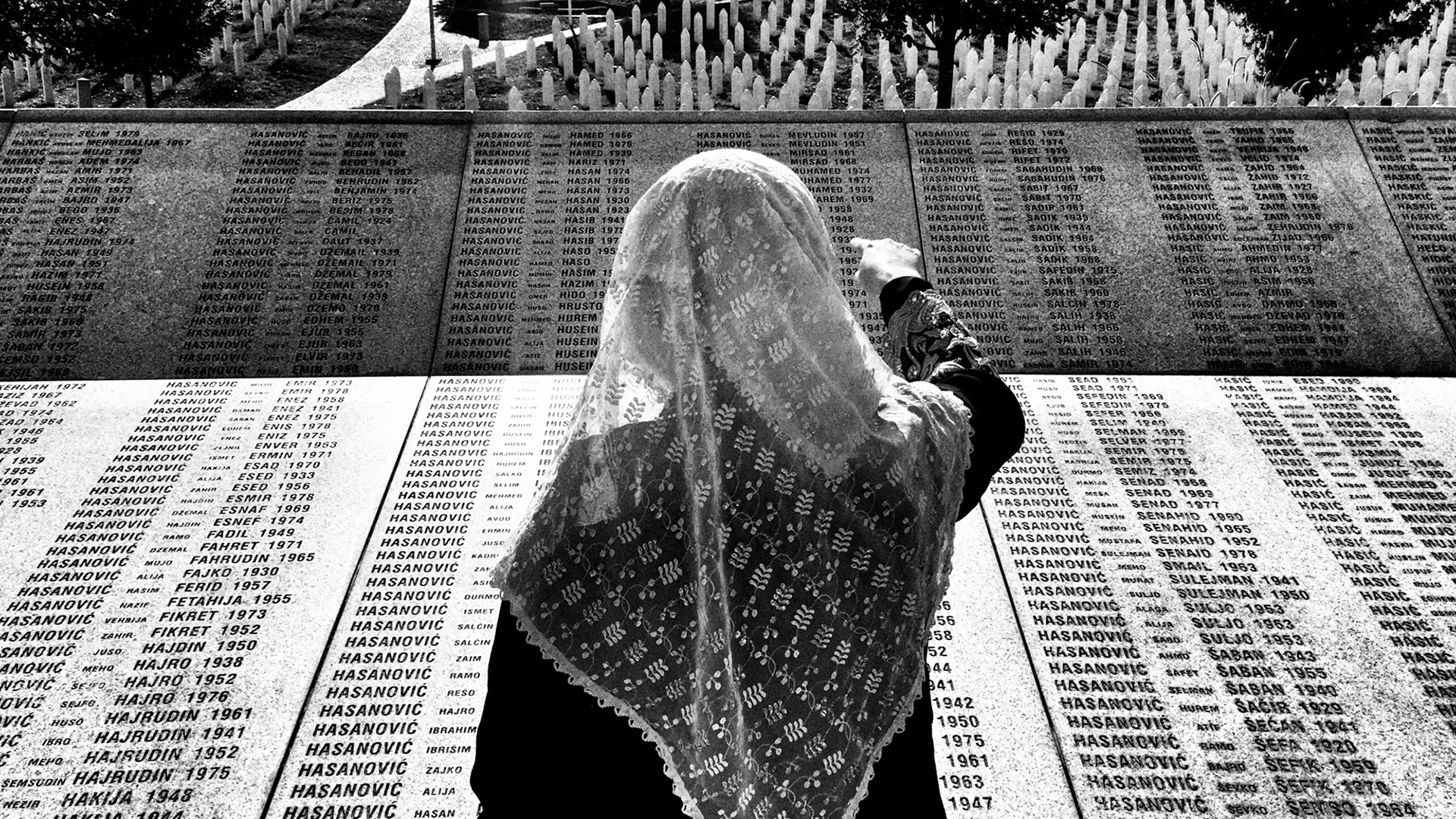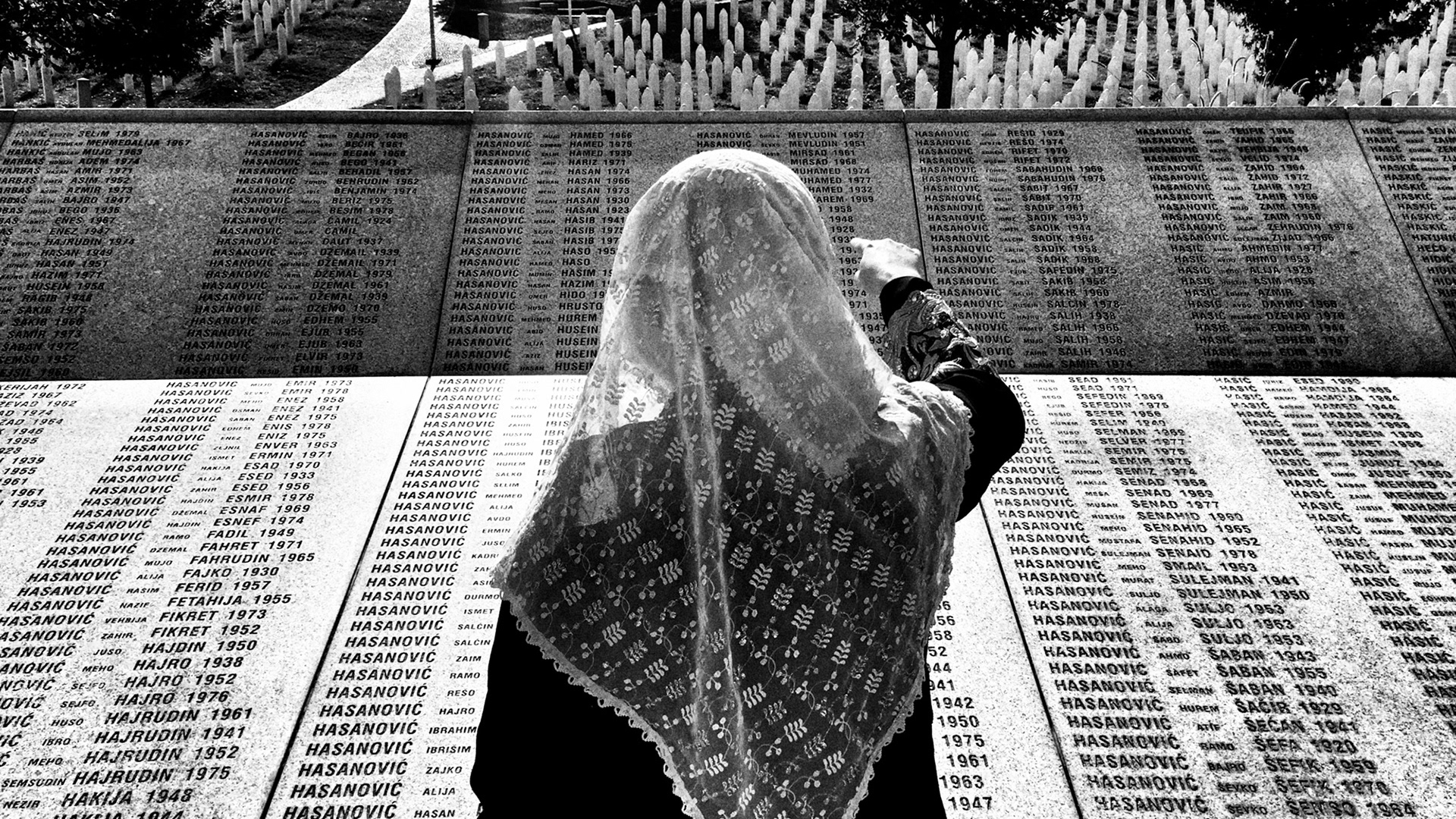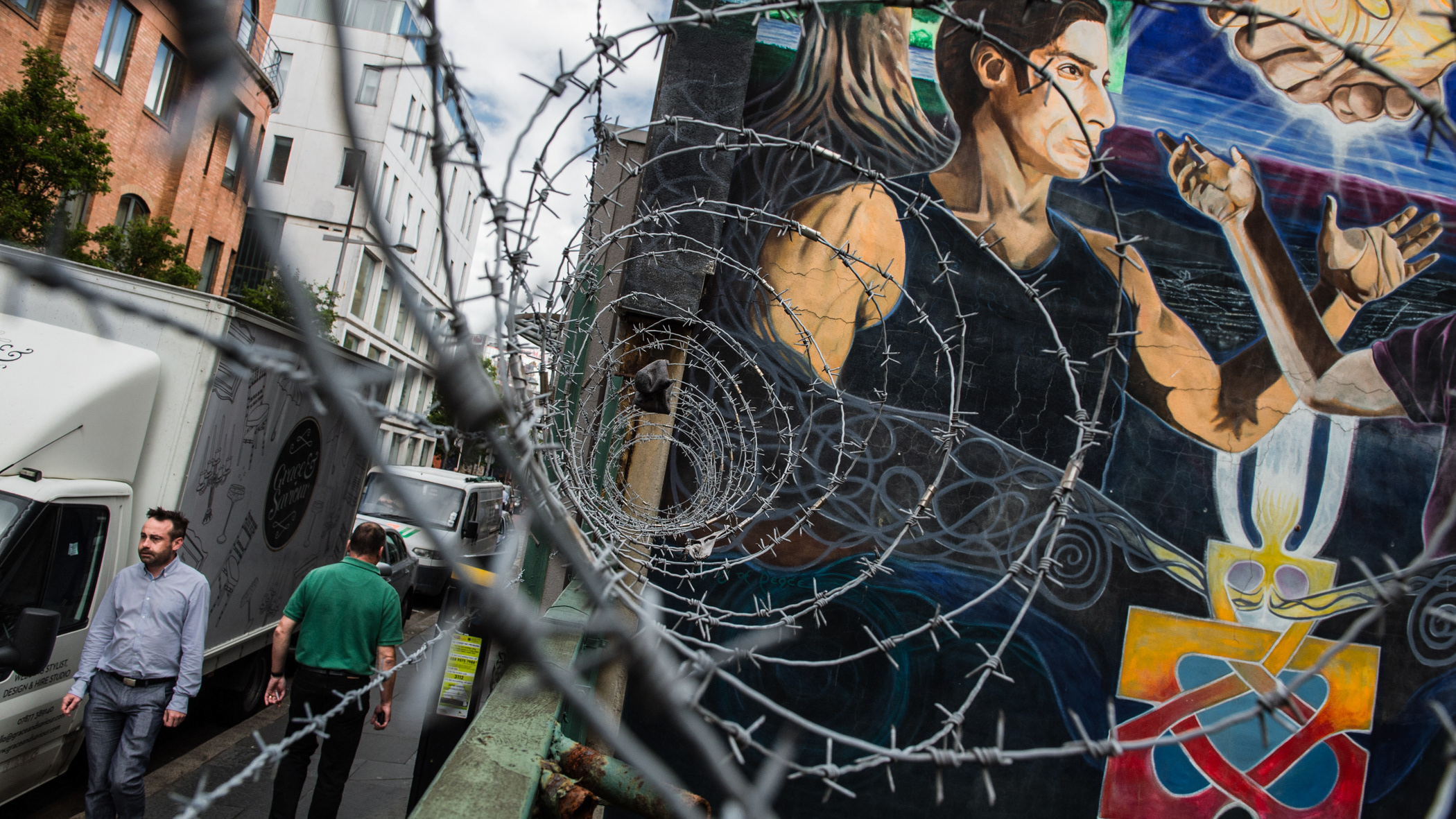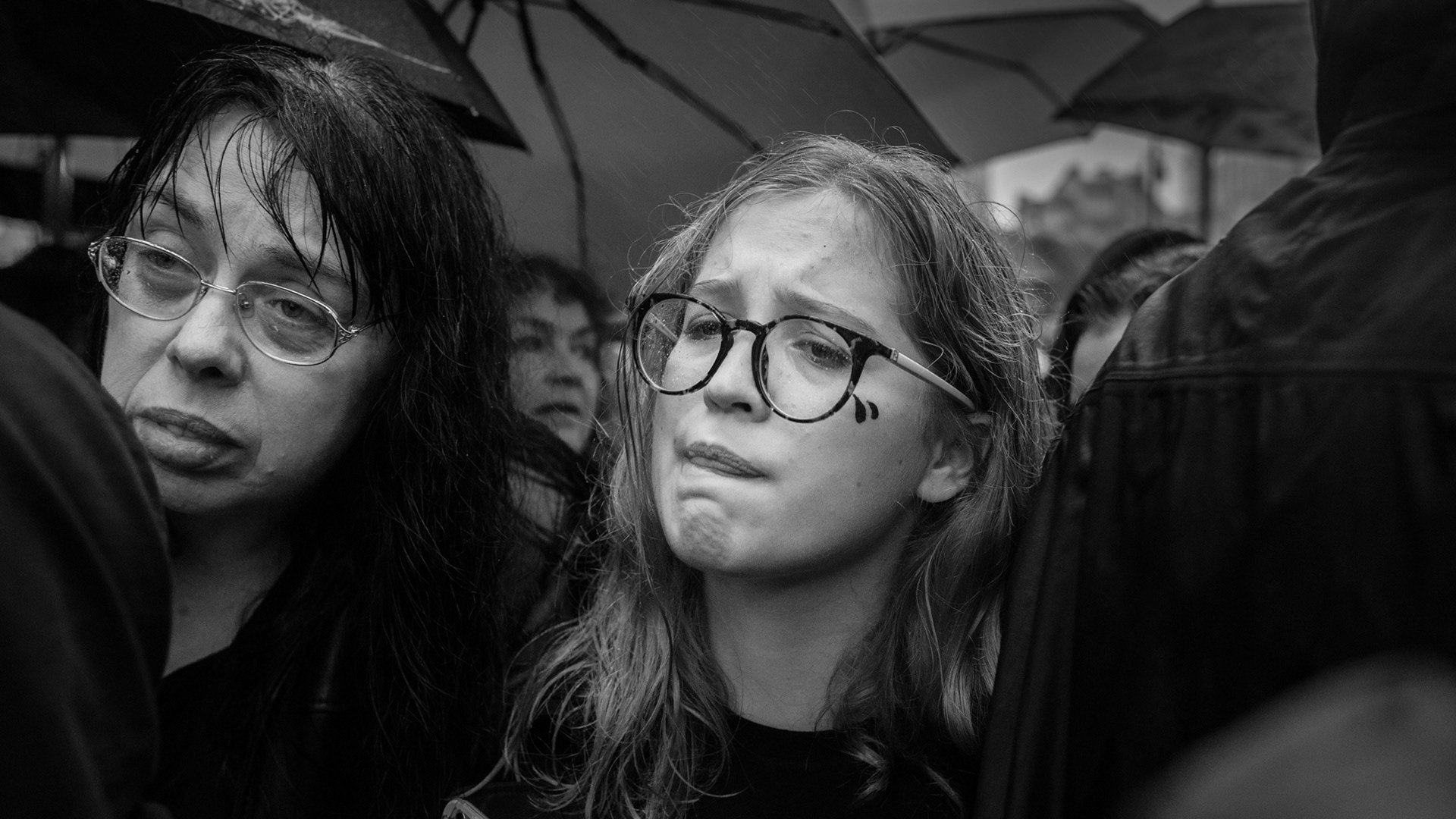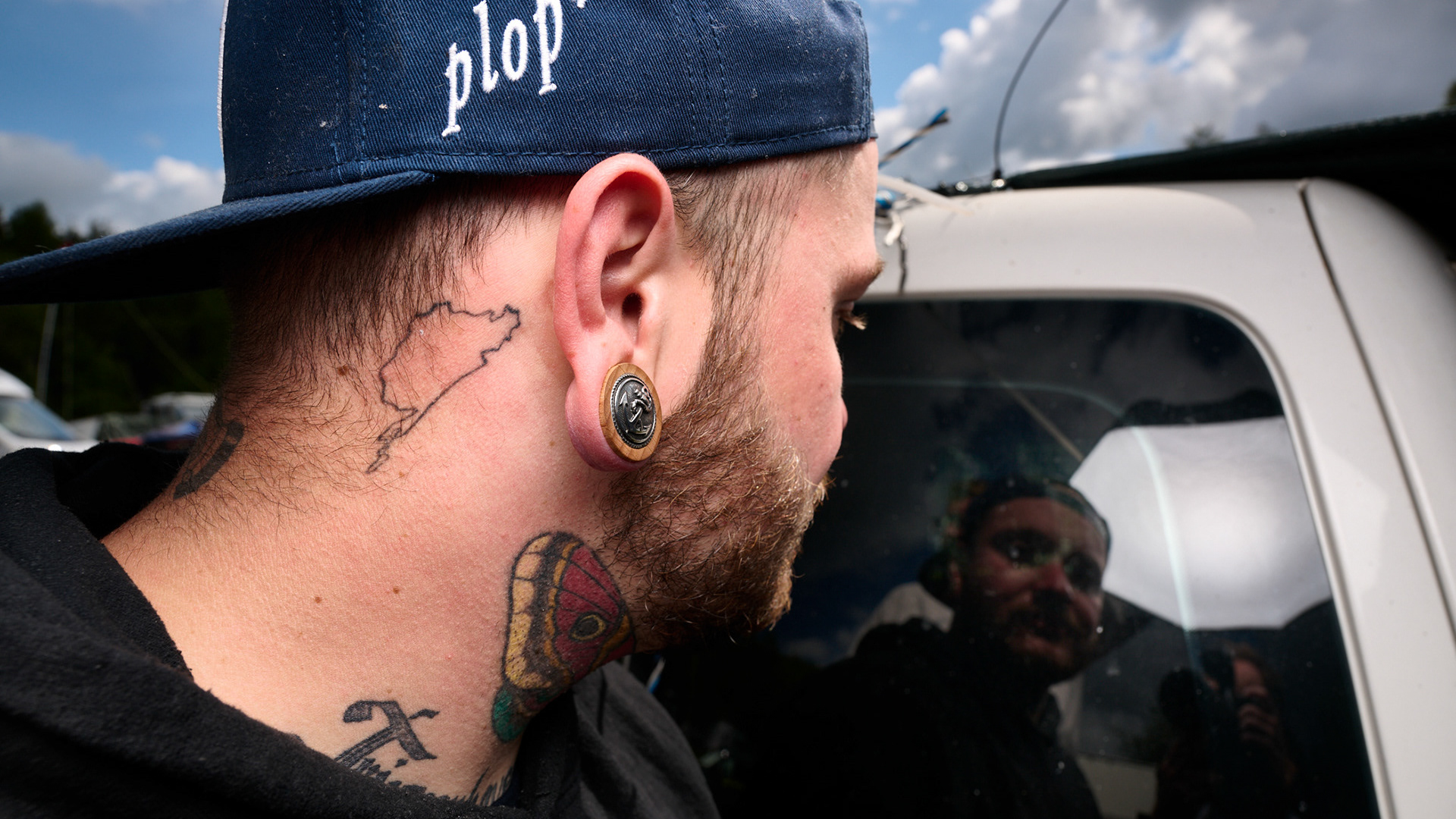My mother bought a kilo of marmalade at the Markale market (known from two massacres of civilians: February 1994 and August 1995), which at that time, even during the cease-fire, was quite a rarity. It was a present for my brother and me, with whom instead of eating it, we smeared the terrace explaining that the insects that were gathering there were hungry. As our mother saw it, she did not know if she should start to cry or laugh...
Hidajeta (right) studies political science, her brother is a firefighter.
Bosnia and Herzegovina's shared future beyond divisions?
Yes, I think it's possible, but we all have to work hard. The main reason for what happened and the current tense situation in the country is the political situation inside the country. As soon as the political mood changes, the mood in society will change so quickly.
of Bosnia and Herzegovina) are you afraid of?
I'm worried that all this can happen again. Unfortunately, there is a chance that this may happen again because there are internal tensions in this aristocracy.
Personally, because I entered adulthood, I started to work and think about the future, I conclude that emigration is the only way out.
Adnan is a tourist guide. He tries to stay in shape by playing water polo.
I do not know if these are memories, or just images captured in my head, by the stories of other people. I was born a month before the siege of Sarajevo. Such memories/images were those when we wanted to play with our peers; we had to stick to established rules, such as moving around only by fences, so that we would not be visible to unwanted eyes.
Faruk in traditional Bosnian outfit. In his spare time, he is a folk dancer.
One of the superstitions in our culture is the spillway of water (splashing) fortunately for the travelling people. This is not a religious tradition, a more popular belief. During the war, women poured water behind the husband who was coming to the front. My mom did it too,
I remember it well. I, as a child, thought it was fun,
so I ran between the house and the backyard with a new supply of water and, like her, poured out after my father. My mother was a bit emotionally distracted, because, on the one hand, it meant more happiness for her husband, on the other hand, less drinking water for us. At that time (siege) there was no running water at the tap, and the nearest water point was 4 km away from our house.
My mom comes from Goražde. Before the war,
she ran a perfume shop there. She came to Sarajevo to study, where she met my father. A year after the first meeting, she became pregnant. Sarajevo was a new place to her, she knew anyone here. When the war broke out, her shop was still operating. She had many bottles of perfume, that helped the whole family to support themselves during the war. At that time, the only source of information in our home was the radio. She listened to the news and waited to hear about her hometown (Goražde is the only city east of Sarajevo that does not belong to Republika Serbska). One day, news reached her that her mother was injured. Living in the besieged city that Sarajevo was at the time, she had no chance of getting to her family…
Edin (pictured with his mother) is a local entrepreneur.
He and his brother were born during the siege of Sarajevo.
During the war, there was a such anecdote that Hrasnica was for Sarajevo what Germany for Bosnia and Herzegovina flowed from there help in the form of food and money (800m tunnel connected the Dobrinja district with But more - the last neighbourhood adjacent to Hrasnica within the administrative borders of Sarajevo; the UN controlled the airport. The tube also organised a transfer of weapons from, among others, Iran, because international embargoes covered the capital)
Many people praise history, and they want revenge and settlements. Today there is no chance for it, but maybe one day…
I would not want to die too young.
I am most fearful of God and destiny.
Kerim is an avid fan of a local football club. He and his friends call themselves "a Maniacs".
He is a barista in a modern coffee shop.
After my mother became pregnant, my father took us to Croatia for fear of war. He enlisted in the Bosnian army and defended Konjic (a small town 60 km from Sarajevo). After the battles, arrests and torture which he underwent in the Mostar prison, he took us to Italy. There we met with great kindness. We lived in Rimini.
Then we moved to Germany, to my uncle. The road was not easy, because I was born in a refugee camp in Bosniak, I did not have any documents - birth certificate, passport, etc. I was just a stateless child. So we spent wartime time migrating from country to country.
When the war was over, my dad came to Germany for us, we were all going back to BiH, even though we probably would have lived better in Germany. He was a patriot and wanted to live in Bosnia. We came back at the end of 1995.
When we were ready to return from Hanover, a man approached me and asked me where I was going. I replied: I am going to see my dad. Did he answer: Me?
This was my father who came for us. It was a meeting that moved me very much.
Haris is a graduate of international trade and finance in Turkey. He imports argan oil from Morocco and helps his father run a photocopying point on one of the main streets of Sarajevo.
Vedad graduated from Islamic Faculty on The International University in Sarajevo.
In 2017 he was one of the youngest Imams in Sarajevo.
The first school I went to was medresa (an Islamic theological school), so I dealt only with Muslims. But then I studied mathematics, and at that time I made a lot of intercultural acquaintances. I graduated from two schools: the University of Sarajevo and the Islamic University in Sarajevo.
Of course! The Islamic University is part of a multicultural platform, a three-religious platform in Bosnia. This institution runs many programs integrating the followers of different religions.
Nothing, I'm an optimist.
As a child, I went to the mosque in which my father prayed.
As I listened to my father's conversations with other men, a mortar shell hit the minaret. The bang was powerful, almost stunning. Panic broke out. I only heard the ringing in my ears.
I remember that I looked up and saw that the building was falling on me. I was so shocked that I could not move. I have not seen anything. Nothing happened to me, and not even one shard fell on me. The only injuries are those I got when my father ran up to me, grabbed me and threw me aside, and I got rid of my
knees and elbows…
Amar is a croupier on cruise ships.
He is travelling all over the World, but he never thought of moving to another country.
When he is back home, he break-dances in Sarajevo's old town with his friends.
